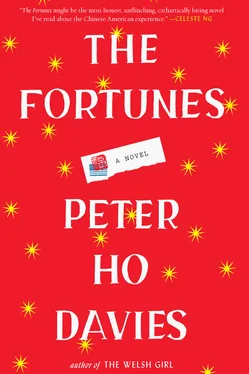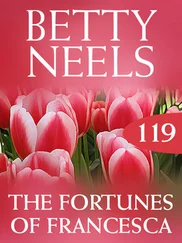SEE, SEE, SEE
They called her the C.C.C. She had begun to hang out around movie crews, wherever there was a shoot. The Curious Chinese Child. Queue-rious, someone cracked, tugging on her braid playfully. She didn’t mind. She could picture the credit:
Curious Chinese Child………………………….. Wong Liu Tsong
The long line of dots like a string of pearls.
One day they herded her into a crowd of Chinese extras. She was thirteen. Only you have to stop ogling the stars, someone told her. They paid her seven dollars and fifty cents, more money than she’d ever seen. Chinese extras made a buck fifty more than whites because of their rarity (one of the very few times she’d make more than white performers). She gave seven to her father and he left the broom in the corner. She saved the rest to take herself and two school friends, Jia and Zhen, to the California Theater on Main Street when the picture opened. She needed witnesses. She was so excited to see herself, her face hot and tight as if stretched before a projector bulb. But she couldn’t find herself on the screen. There was the street scene, there were the stars, there was the crowd, but she couldn’t see herself in it. Couldn’t find herself among all those other Chinese faces. That’s me, she whispered to the girl next to her in the balcony. There I am! But it was a lie. She couldn’t believe she could disappear on film, she who’d felt so self-conscious, so incandescently aware of herself. When she stepped out into the matinee sunlight, her eyes stung, and she blinked away tears. Her friends didn’t even mind, just giggled and thanked her for the tickets. “Let us know when you’re in another movie.” It shocked her less that others couldn’t see her — she knew she was only an extra — than that she couldn’t find herself. It was like looking in a mirror and not recognizing yourself. What good was the silver screen if it didn’t reflect you?
She went back alone the next day and sat through show after show, searching the edges of the frame, but she was as invisible on film as she had been in the audience. She felt cheated. Four hours walking up and down before the camera, and nothing to show for it! She yearned to have the projectionist halt the reel, or run it in reverse. She pictured the crowd bobbing back up the street, carefully planting each backward step with a kind of exaggerated nonchalance. How well they kept their straight faces. Get out of the way, she wanted to call to them. She wanted to reach out and push them aside. She thought perhaps they would step back and reveal her, still walking forward, but no, she must have walked backward herself, down off the curb, back across the street, and up onto the other side without tripping. She imagined herself pausing with the others, as if to catch her breath, after the director called “Action” and the boy with the clapperboard jumped out of the way, the crowd of them milling about, smoking and chatting, then drifting away in twos and threes until they thinned out. She saw herself alone striding home backward on the balls of her feet, slipping into her room past her mother, plucking her cheeks pale in the mirror, tousling her hair with the brush, holding a towel to her face, and then catching water in her hands, laying it back in the basin, backing at last into her bed and lying there, eyes bright as the light faded.
Within three years she would receive her first screen credit—“A credit to your race,” he called it — in Marshall Neilan’s Bits of Life. She was sixteen. Neilan, fifteen years older, would be her first lover. What was the brassy backstage gag? She pictured it as a sepia intertitle:

It ain’t rape if
he’s a director…
It’s your big break!

Though to herself she whispered, It ain’t rape… if he’s white. Neilan told her he would leave his wife for her, but when he did, it was to marry the silent star Blanche Sweet. He was just the first of many who deserted her. “Men!” she used to toast sardonically. “They’re just so damned scrutable!”
PRE-CODE
Even earlier in her career, before the Code, when the rules against the depiction of miscegenation were not absolute and she could have white lovers onscreen, prevailing attitudes — particularly of audiences in the southern states — meant that her romantic roles were constrained. She never kissed one of her leading men in Hollywood. Whenever their lips approached, something would intervene — a train whistle, a shot, a scream, once the clamor of a huge gong. Her onscreen white lovers invariably threw her over in the end, and her character would usually die — by her own hand if she was an innocent, as in her first starring role, in The Toll of the Sea, or by another’s if she was some scheming seductress. She could be Butterfly or Dragon Lady, it didn’t much matter in the end.
I yearned to play O-lan, she confides in her diary as the ship steams west, because the character was a mother. When she looks back at the journal years later, she’ll be puzzled by a single blank page, until she recalls it was the day they lost crossing the date line.
CRITICAL RECEPTION
Reviewers praised her as “naturally Chinese” and “an exquisite crier, without the need for glycerine.” She was possessed of a “porcelain pulchritude.”
Toll of the Sea was the first Hollywood feature shot in Technicolor; critics called it a short-lived fad, sure to go the way of Kinemacolor, and Prizmacolor before it.
Now at the stern she hears people extolling the “Technicolor sunset” over the shuddering throb of the twin screws. Pewter water stretches away unbroken in every direction, the ship at the center like the last glass proffered on a vast tray.
FEMALE PARTS
She recalls her mother hardly ever setting foot outside the house. Even when her father took the children to see the touring opera troupes, her mother stayed behind. Her father told her that all the women onstage were played by men, and she would stare at them, trying to see if he was telling the truth.
When she was little she thought her mother was scared. When she was older she understood that respectable wives did not show themselves in the street. “Public women” was a euphemism for whores. But she still thought her mother was scared of something. “The poor woman did have seven children over twenty years,” her eldest sister told her once. “What chance did she have to get out?”
Their mother was married at sixteen to a man almost thirty years her senior. Her film-star daughter was seventeen years older than her youngest brother. When their mother died she would care for him as a son. Her sibling could have been her child, her mother a sibling. (And was it amid all those children that she first yearned to stand out? She wasn’t the eldest, the youngest, or a son, after all.)
In a census of 1910 there were seventy-seven females in Chinatown to over two thousand men; they were a minority’s minority.
The women she did spy on the streets as she went to and from school or about her laundry deliveries were prostitutes, or so she guessed. They told her she was beautiful— ho leng. They told her to hurry home.
Her mother saw her once acting in front of the mirror in her bedroom, re-creating some melodrama, hands to her face, then tearing at her hair, her mouth open in a silent wail. Perhaps it was that silence, but her mother had said nothing either, just held her eyes in the mirror for a moment and turned away. They never spoke of it; her mother can’t have told her father. He would have beaten them both if she had.
Читать дальше














